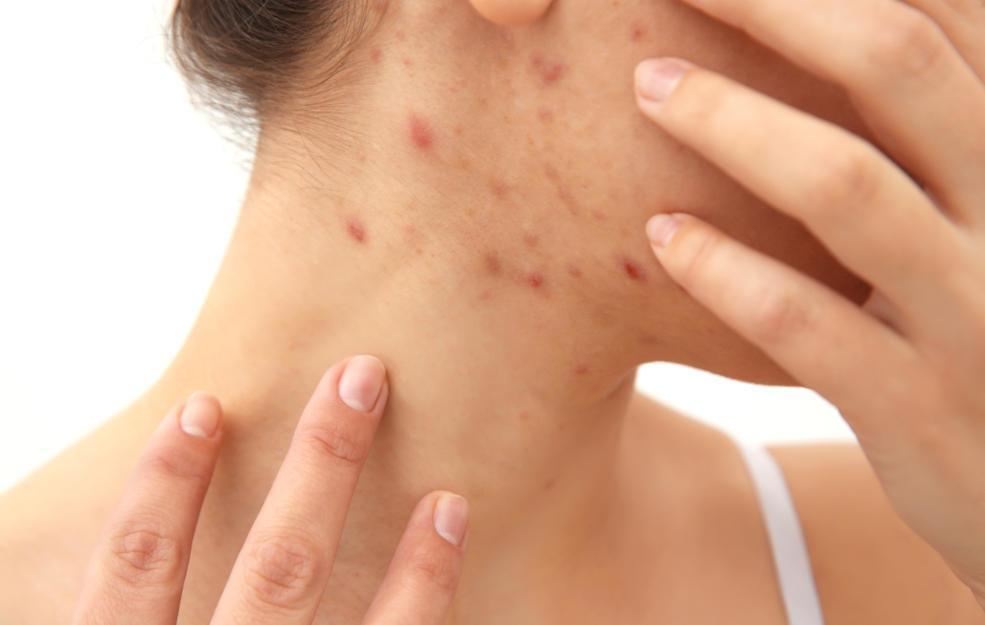Think about tiny vermin burrowing deep into the skin, causing extreme severe infection and itchiness. This phenomenon is termed as scabies. Let's learn more about scabies symptoms, causes, and treatment.
What Is Scabies?
According to WHO, Scabies has infected more than 130 million people at any time. It is a highly contagious condition that infects and attacks the skin. The percentage of individuals affected with scabies has also increased drastically. It was estimated that the direct effects of this disease have led to more than 1.5 million YLDS (years lived with disability).
This skin condition can spread very easily from individual to individual through direct or close physical contact. It also spreads by sharing clothing, bedding, and furniture infested with mites.
Scabies Symptoms and Signs
After exposure to scabies, it takes up to five to six weeks for symptoms to appear. The signs and symptoms generally develop quicker in people who have had this disease before. The most apparent reason for scabies is intense itching that gets worse at night. Other common scabies symptoms and signs include:
- armpit
- nipple
- wrist
- waist
- elbow
- penis
- face
- buttocks
- head
- hands
- soles of the feet
- neck
- the area between the fingers
Sometimes, babies can be affected by an extensive infestation, covering a most of the body. Infants who are infested with scabies tend to exhibit symptoms of irritability and sleeping and eating difficulties.
What Causes Scabies?
Scabies is caused by mites that tunnel into the skin. It is an infestation of the Sarcoptes scabiei mite, also known as the human mite. These mites mainly burrow using their mouthparts and front legs. They take 25 to 60 minutes to tunnel into the skin. Some of the most potential people to become infested with mites include:
- parents of young children
- kids attending school or daycare
- sexually active young adults with multiple sexual partners
- inhabitants of extended care facilities
- people who are unimmune, including those with transplant recipients, HIV/AIDS, and others on medications
Can Scabies Be Treated?
Scabies can be treated if the patient follows all instructions from the doctor when using the medications. The medicine package provides added information. Other than that, discuss treatment with the doctor if a patient is breastfeeding, pregnant, or are treating a newborn or a toddler.
Besides, do not apply topical agents to face, eyes, or mucous membranes.
Home Remedies to Cure Scabies
Although, oral and topical medications are the best cures for scabies; home remedies are also effective and a safe cure to treat them. Moreover, natural and home remedies heal the infection from its roots and prevent it from re-infesting the skin. Therefore, try these home remedies to cure scabies.
- Neem is a substance with a multitude of benefits. To heal scabies, neem paste, and turmeric can be applied to the affected area. Even neem oil can help provide relief.
- Famous for its antimicrobial and anti-inflammatory properties, turmeric is another amazing cure for scabies. Add one tablespoon of turmeric and a few drops of lemon juice to form a smooth paste. Apply the paste and leave for a little while and rinse it off. It provides soothes from itching and burning rashes.
- Another simple way to treat scabies is to use Aloe Vera. It has many medicinal properties which can quicken the healing process of scabies. Apply aloe vera gel to the affected skin. Let it stay on the skin for half an hour and then rinse it off. Repeat usage for a few days to notice an improvement in the skin condition.
- On the other hand, including curd and fish in the diet proved to be a relief from all the itchiness and rashes.
- Apart from being a well-known stress buster, Lavender oil is a strong antibacterial agent. Pour few drops of this oil in the bath water and apply to the affected areas. Repeat it every day for 2-3 weeks for fast results.
- Sandalwood is a natural antiseptic, has powerful antimicrobial properties, helps in subsiding inflammation, skin redness, and sore skin. Besides, it exerts a soothing and emollient effect on the application. Therefore, it also works great for scabies and other skin conditions.
When to Consult A Doctor
To prevent scabies symptoms and infection to spread one should always use washed clothes, towels, linens, etc. Also, make sure to keep items that cannot be washed in a sealed plastic bag. Keeping the surroundings clean and tidy is another way to avoid this infection. Besides, if there are still concerns or risk for, contracting scabies, speak with a doctor.

 Jun 03, 2019
Jun 03, 2019
 May 30, 2018
May 30, 2018 May 10, 2018
May 10, 2018 May 17, 2018
May 17, 2018